ICARUS









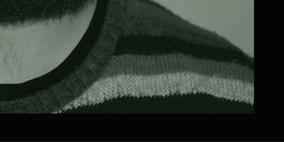
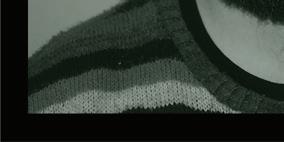
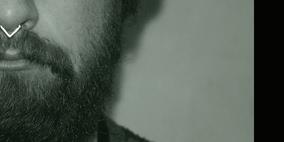
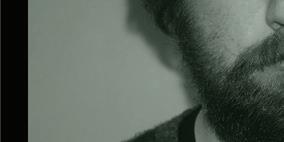
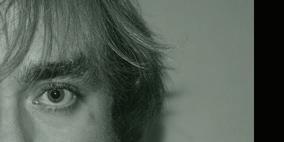
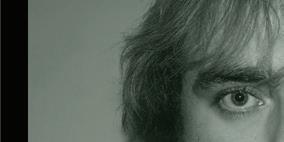
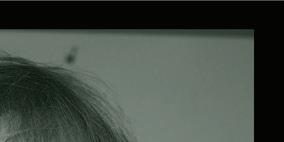
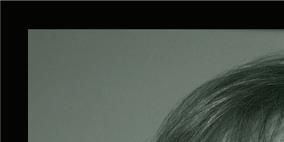
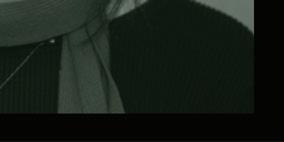
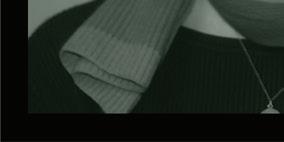
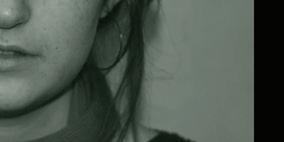
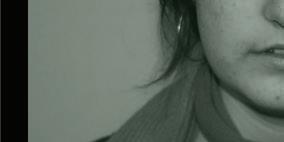
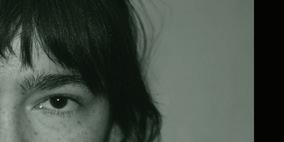

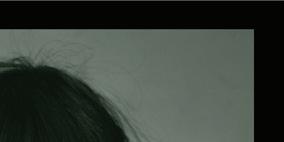
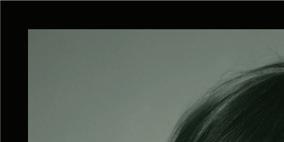
“It wasn’t funny, it was slow, and nothing exciting happened.”
“When you take a photo of anything, you also take a photo of yourself.”
Is something bad if it’s unfunny, slow, and unexciting? We don’t think so. We (Cathal & Ava) have been thinking about being serious. We're not committing to it (yet). But we seriously, genuinely, embarrassingly, earnestly loved reading / looking at / listening to your art, & we’ve been thinking about the value of being unfunny, slow, and unexciting when our attention economy teaches us to be bored. Occasionally life is serious in a way that can’t be condensed into a punchline. We love the funny & fast & attention-grabbing as much as anyone else (lots), but good art sometimes commands your attention in a different way.
When you make art about anything, it reveals your attention – what you care enough about to preserve in some way. Looking through submissions, we felt like we got to know you – what you devote your energy to, what you care about, what you make art about. We are thinking of art as a kind of historicizing, a documentating of emotional history. History is often assumed to be made up of events, but it is also made up of feelings, of poems, of things slightly-off-kilter-from-the-facts.
I guess what we’re trying to say is:
Read these poems slowly. We’re making history, baby!
- Cathal & Ava
Cover: At the Kitchen Table by Isobel Mahon
SECTION ONE: Absence of Sisyphus by Jes Treff 2
Người nước ngoài Việt Nam by Ashley Kim 3
Capri Sun by Canice McCarthy 6
Crunch by Willow Hannon 7
Paul Frederick by Vivien Sweet 8
Hail Mary by Aoibh Anna 12
Pillow Man by Róisín Sheerin 13
Painting for Jesus by Charlotte Moore 14
The Bell by Catherine Ding 15
Lunch with Bob Dylan by Fionn O’Drabhláis 16
Untitled by Yeva Huseva 19
SECTION TWO: Luddite Habits by Rhiannon McGavin 21 quiddities by Claudia Friel 22 Fish by Dualtagh McDonnell 23 Aufgeben - Surrender by Ellen O'Brien 24 Questions by Grant Burkhardt 25 Hybrid by Luca McVey 26 The Hinterlands by Ethan Kerwick 27 Exposure by Scarlet Short 28 Sunny Side Up by Lily O'Byrne 29
MR. FOX MEETS THE WOLF by Lauren Scott 31
SECTION THREE: A Litany of What Keeps Me Up at Night by Catherine McGovern 33
Poems I Won't Write by Charlotte Moore 34
Forgiveness Regime by Megan O'Driscoll 36 Sea Dog by Ben Whelan 38
The Worst Things Always Last by Eve Smith 40
Sensory Memory of an Extended Breakup by Gabrielle Fullam 41
The Lady by Kate Moloney 42
The Horrors by Kratika Joshi 43
Ankuft - Arrival by Ellen O'Brien 44
SECTION FOUR: Slugs by F.C. Andrews 46 New Bug on the Block by Jess Sharkey 47
Deposit 1 by Seoirse Swanton 48 A Jump Off by Ashley Kim 49 Oedipus by Matthew James Hodgson 50 I, Lucia! by Chris Fitzpatrick 53
FEATURED POET
Seán Hewitt poems from the IQA 58(Irish Queer Archive) 63
Bernadette Devlin Memorial by Luke Rabbitte 64
White ball climbing up the slope Growing smaller as it rolls. Motion captured – pause, rewind. It goes up and down all night
abides;with supermarket billboard sheen, the beigest place I’ve ever seen. Every word is a rhythm. Intonations differentiate a mother from the tomb, where she bows to her mother, who planted her in Hoa Kỳ like a rice seedling. But here we are workhorses, and ghosts gather for cups of sugarcane juice, a taste of nước. If in Việt Nam the Viet Cong exiled you with the choir of bombs and gunfire, then you were stuffed like plastic animals in a Noah’s Ark playset, promised boat salvation, might you float? You cannot touch the soil. Fresh memory germinates. Your loved ones collapse when Crosby sings, I’m dreaming of consummation. You celebrate the wedding of Việt Nam to her groom America. Former generals scrub disobedient drugstore toilets. Farmers learn English at the community center. Befriending the empire, in camaraderie with death by democracy, whoever again and again says, “I’m American, I guess,” won’t see
that you're not free until you've been made captive by supreme belief— the American dream, you say? When that woman said that the image of Hồ Chí Minh was a thorn to the heart and liver, her words, like a mother bear’s, were in protection, not mania. Little Saigon is a refuge where the back scratchers have hyodo son engraved, and the oxtail in my phở đuôi bò has the tenderness of a skin. Vivid hues of áo dài and rows of gleaming jewelry aren’t an upbringing like the peach bits swirled with orange and raspberry in a Tastea Yummy Gummy. Are the undulations of a homeland ache relentless? Then
they are to me like the daikons and carrots married at any market for slicing and pickling into đồ chua. Comfort makes them visible, preserved like maple leaves in my children’s dictionary. They say that rivers have meanders and life has phases. I wish I could say it; I grieve, I find solace, I walk beside you.
The linen of Garmisch-Partenkirchen, the possessions of the prince-bishopric. An excellently executed portrait of Sister Germanface on Fronleichnam day carrying forth the body of Christ into the cold town. The Loisach is dribbling with salmon tonight and they are cold on the tongue. For what licked Fionn? In periodic gnaw, circumnav igating thawing fought-for winter well water well asked after and sought for, the cold melt frustrates us.
Garmisch, I shall be brief because tomorrow your bishops and the corpus christi canter the streets. You have caught the alpine disease. The meadow elves stay two centuries away in stakeout in the trees. Suspicious of the sale of compact life, the Lidl edition. Nothing fresco about your worship, all is beheld indoors. Catamarans of granite, rugpinches of elven soil and the mortifying caskets of icemen are surrounding your town and you will never break the siege. Finn Eces remotely preparing, all the time preparing for wisdom but still never gets a lick. The great soul of the age spread go fairsing moves to the next Tobar Segais under age-old siege. The road rage of the unfree. Oh great overflier, flatten us to roads and see!
Ecce homunculus ; raised in spermy pseudoscience in hail mary animation he betrays his mother and creates a fork. Fork number eight billion. Persistently forking and doing everything again. The son’s son sets orange warning on his son - “in front is the really real but all you see of yourself is in your rear facing face, a component of the history of the world is all you see in your image, this is the road rage of the free, I think and think and fight and fork and I end up back in my barefeet; I will only ever believe what I see”.
It is my special addiction to travel two towns over and still be me and honestly I could escape the borough and the era and awake two centuries ago and still not find peace. I find peace starting anew on the blue Danube until a drunk man butchers the tune, cudgels the mood.
A Night in Ensconcia. Moving slow over great distances we kick up timeless earth. Overflowing Danube carrying us to Cassiopeia. Conditions of carriage have never been clear. Fastened in the suspended occult. Little caregivers career and swim here. You exist there and here, then you disappear.


Paul Frederick hated his cold sores. On Sunday mornings he rose early to feed the poultry and he rubbed the inside of his mouth hard, picking at his gums and watching the chickens ravage the kernel mixture. He hated how the feed smelled; rotten eggs and mildew and sea bass culminated in the kind of smell that refused to leave Paul’s clothes no matter how hard his mother scrubbed. The stench was only amplified by last night’s thunderstorms. Turning his back to the chickens, he gathered the remnants of the National Geographic magazine he had left out on the porch, now strewn in sinewy leafs along the brick-and-mortar path leading up to the coop. It had just occurred to Paul that if his mother saw the mess he made of the magazine, she might cancel their weekly subscription, and then when Sunday came and he and Mrs. Dunning sat down for catechisms and tea, he would have to share her Bible instead. He knew if he peered over Mrs. Dunning’s shoulder to read along with her, she would snort and huff under her breath for a minute or two before yanking her Bible out of his sight. Paul was a sensitive boy and could not stand to be reprimanded. “I hope you all gots enough to eat,” he said. “Plumped-up scoundrel birds.” Paul rubbed his cold sores again, and then, remembering what Mrs. Dunning had told him, stuffed his hands deep in his overalls.
Paul Frederick hated his cold sores because they were white and callous and ugly, and they made a little boy look stupid and filthy, according to Mrs. Dunning. “Little boys must always look clean and proper before the Lord,” she said. “To shame with little boys with scabby mouths.” She believed that the Lord and Savior was coming back in exactly two months and three weeks and seven days.1 For the occasion, she had set aside a snakeskin belt, her only pure-white blouse, a cowhide leather skirt, and two half-burnt oatmeal-scented candles. Mrs. Dunning had already memorized the Book of Revelation and had a habit of loudly reciting the seven plagues to those who appeared to be followers of the Antichrist as she made her way through town2. It was a real shame that more people were not as prepared for The Second Coming of Jesus
1 Which really was just another week, but Mrs. Dunning liked to always have a running countdown of the time until His Coming that included months, weeks, and days so that she could announce, “He will return in exactly TWO months and THREE weeks and SEVEN days,” to anyone who would listen.
2 The Seven Bowls of God’s Wrath are mentioned in Revelation 16, and they are as follows: ugly, festering sores appeared on Satan-worshippers; every sea creature died; all bodies of water turned into blood; the false prophet could prepare for battle; and an earthquake split all of the cities of the earth. Mrs. Dunning’s choice plague for the Unholy little boys was the fourth.
as she was, she thought, for she sure knew many sinners. Paul Frederick’s father, for instance, was the worst of the lot. “That son-of-a-bitch will burn in hell with the rest of his kind,” Mrs. Dunning remarked often. “Those sissy, bent men gonna git what’s coming to them, do you hear me?” Here, Paul would nod. He had heard that his father was last seen leaving the barbershop in a pale yellow Ford with a New York plate when Paul Frederick’s mother was three months due. He was headed north towards the mountains.
Mrs. Dunning was the closest thing that Paul Frederick and his mother had to a neigh bor.
Every Sunday, some Mondays, and every other Wednesday Mrs. Dunning would make her way down the main road one-and-a-half miles to the green stop sign where Paul Frederick would be waiting for her in his neatest corduroy trousers and button-up (“A little boy must always put on his best clothes to meet a lady,” she declared) to walk the last half-mile stretch together to his house. The path was wide and quiet and filled with white grubs and cicadas that pinched Paul Frederick’s toes if he walked too close to the chickweed, which was nestled in the pockets of dirt that peppered the road. The pests were a sign of the Second Coming, Mrs. Dunning decided. “The locusts will return and devour the bodies of the sinners, just like God told Moses back n’ Egypt,” she said to no one in particular. “I reckon the folk by the sandlot won’t be no more than a pile ‘uh guts.”
Paul Frederick popped a blister.
When the pair reached his home, both of their shirts and undergarments were soaked through with sweat. Paul Frederick saw the outline of Mrs. Dunning breasts and the bulge of her calves folded under her beige pantyhose, and he quickly looked away towards the chicken coop. Mrs. Dunning did not seem to notice. For Tuscan sun that blazed overhead and beat down on the backs of the cattle, bleating and butting into one another, proved to be an adequate reason for a complaint.
"I watched the animals on my mama’s farm when I was a little girl an’ and they don’t ever cry like that,” she said. She eyed one of the cows approaching the splintering fence. “You and your mama done messed up here.”
“They’re just big gentle creatures,” Paul Frederick replied, trying to recall one of Jesus’ parables, “An’ they don’t know no better.”
Paul Frederick pushed open the screen door and stepped back to make way for Mrs. Dunning, who, clutching her Bible in her left hand and Paul Frederick’s hand in her right, nearly lost her footing and tumbled over the doormat. The room was sparsely lit with slivers of light falling through the three windows’ slats and crisscrossing neatly on the wooden floorboard, which one must pay careful attention to when entering
the foyer of Paul Frederick’s house. It was only four months ago that Mrs. Dun ning claimed that she had stepped on a nail in the kitchen, began bleeding profusely (though neither she nor Paul noticed until she left in the evening, for her stockings were thick and opaque), and was forced to limp home, praying to God for “a little gentleman” to accompany her; she reminded Paul of this often3 .
There was a chair tucked away in the corner of the room adjacent to the screen door for Mrs. Dunning to sit. Paul would then crouch down and begin to work the boots off of Mrs. Dunning’s feet, taking care to unbuckle each cheap copper clasp before wiggling her ankles out. Mrs. Dunning kept her eyes trained to the stucco roof. “Today the Lord has blessed us with many things, an’ for that I pray the prayer He taught us to pray,” she murmured. Neither Paul nor Mrs. Dunning had been to church in a long, long time. Not since the Our Lady of Hope congregation had been driven out by an in festation of mice. Not since Paul Frederick’s father drove off in that pale yellow Ford. Not since Mrs. Dunning was widowed.
Once the boots were off and the fireplace lit for the evening, Mrs. Dunning sank into the house’s sole armchair and Paul Frederick on the stool opposite her, with their backs to the chimneypiece. The blazing Tuscan sun had set behind the mountain range that shrouded Paul Frederick’s town from the rest of northern Mississippi. Paul Frederick’s sharpest button-down had dried flush with his chest, which boasted his protruding sternum that he admired. Not wanting to bother Mrs. Dunning, he stared long and hard at the burning woodpile in the fireplace.
Mrs. Dunning began to read her Bible aloud.
“My God, whom I praise, do not remain silent, for people who are wicked and de ceitful have opened their mouths against me; they have spoken against me with lying tongues,” she recited, looking up at Paul. “See, see here Paul Frederick, you best be listening real close to me now. You an’ me have enemies, out to get us, who don’t believe in the Lord.”
Paul Frederick was thinking about the National Geographic magazine he left out in the rain last night. He grew angry at himself for being so forgetful and careless with his mother’s subscription. A foolish, wasteful thing to do, to let a mere thunderstorm ruin a magazine, he thought, glowering at the fireplace. How he’d do anything to turn back time and retrieve it from the porch!
Mrs. Dunning continued. “An’ now David asks God to curse his enemies, an’ he prays, ‘May his children be fatherless and his wife a widow. May his children be wandering beggars; may they be driven from their ruined homes.’”
3 It was not actually a nail that had impaled Mrs. Dunning but instead a loose triangular-shaped woodchip that Paul Frederick had dropped on his walk from the woodpile to the fireplace. It never occurred to him to correct Mrs. Dunning when he found the faintly bloodied chip the next morning, which now resides on the mantel above the fireplace.
Smoke wafted from the fireplace and seared her beady eyes with soot. “May no one extend kindness to him or take pity on his fatherless children. May his descendants be cut off, their names blotted out from the next generation.” Mrs. Dun ning rubbed her eyes somberly.
“Like that blasted sissy father of yours, runnin’ off an’ leaving your poor mother. An’ you.”
Paul Fredrick’s grip tightened on the bottom of his stool. It isn’t fair, he thought. He couldn’t quite pinpoint what exactly was not fair. Paul Frederick just knew that this was not right; that his magazine was strewn in pieces along the brick-and-mortar path near the chicken coop, that he was here listening to old Mrs. Dunning read some bull from her Bible, that his mother would not be home from town until late, that his father would not be home from town ever, that he was a little boy with ugly cold sores who had to rise early tomorrow morning to feed the chickens. The flames licked the edge of the chimneypiece.
“May the iniquity of his fathers be remembered before the Lord; may the sin of his mother never be blotted out. May their sins always remain before the Lord, that he may blot out their name from the earth,” she closed her Bible with a satisfied smile. “God will remember your father’s sin in hell, an’ he won’t get away with it.” Her smile grew wider. “You needn’t worry—”
Paul Frederick wheeled around and slapped Mrs. Dunning hard. The armchair tilted back, suspended momentarily by the glow and hazy smoke of the fireplace before tipping rearwards into the open flames. He had turned around and walked out of the screen door before he heard Mrs. Dunning scream. He walked past the chicken coop and past the bleating cattle, past the green stop sign, past the Our Lady of Hope church and past the barbershop. The cicadas were nestled in the trees now, chirping, almost drowned out by the gust of wind that rustled the field of chickweed.
Behind him, the house was aglow. Paul Frederick was headed north towards the mountains.
Aoibh Anna Knuckles of my thumbs nestled in the crooks of my eye sockets, I searched for the words of the forgotten prayer so now they glow, back onto me from the laptop screen, and strange vowels fill up my mouth, like blackberries
familiar but not at home, stuck between my tongue and teeth, vaguely reminiscent of childhood
Now and at the Hour of Our Death
I’m pretending my pillow’s a person Who seems to be quite well fed. I’m pretending my pillow’s a person With whom I share my bed.
I’m pretending my pillow’s a person Who isn’t very deep. I'm pretending my pillow’s a person Before I go to sleep.
I’m pretending my pillow’s a person, And isn’t he the fellow?
The pillow I pretend is a person Is pretending I'm a pillow.
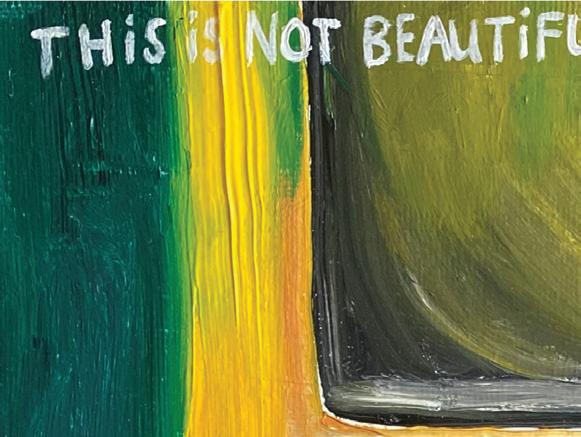
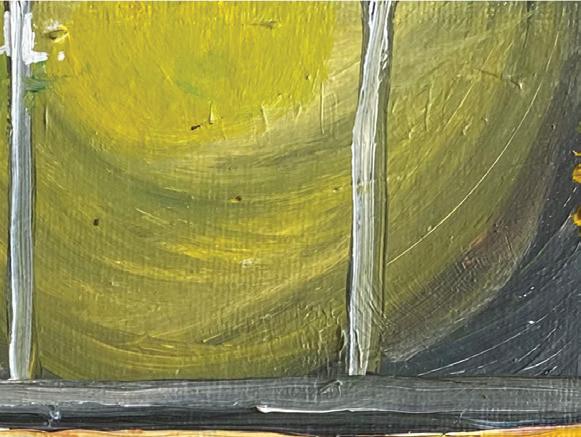

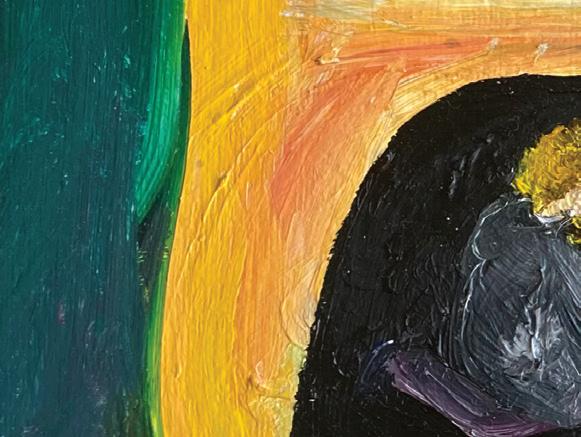
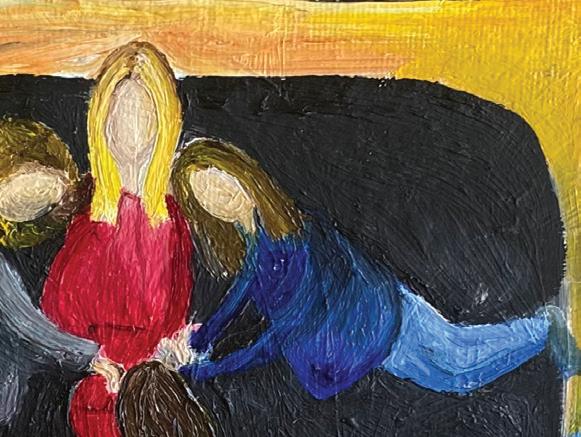
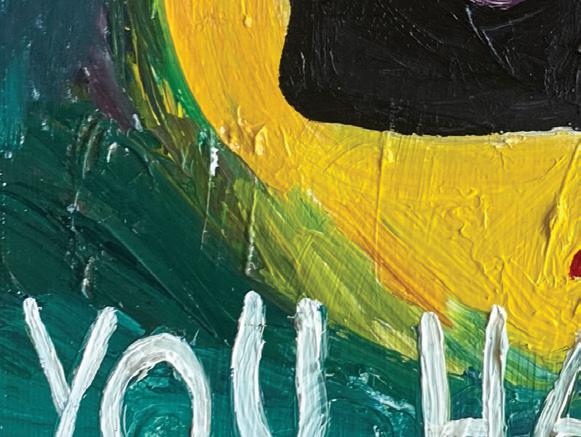
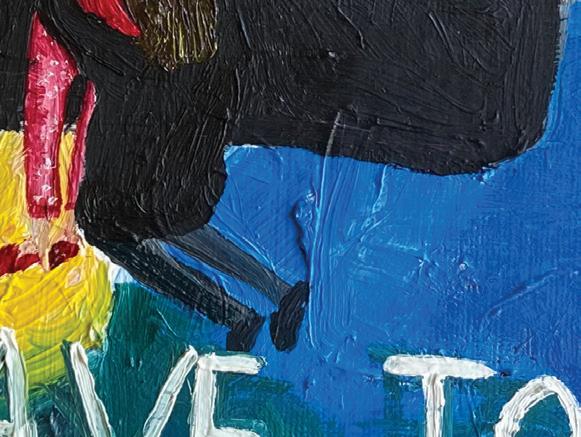
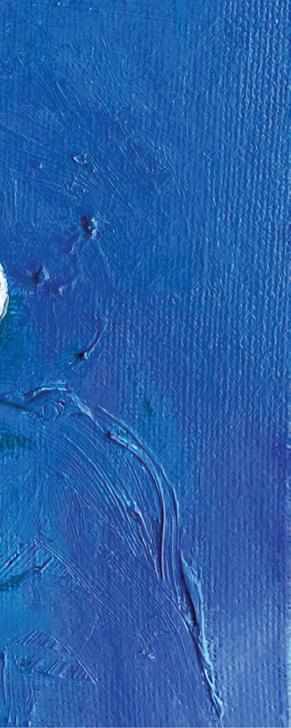
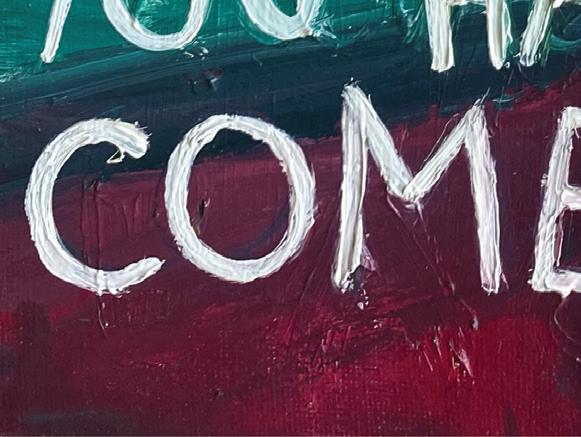
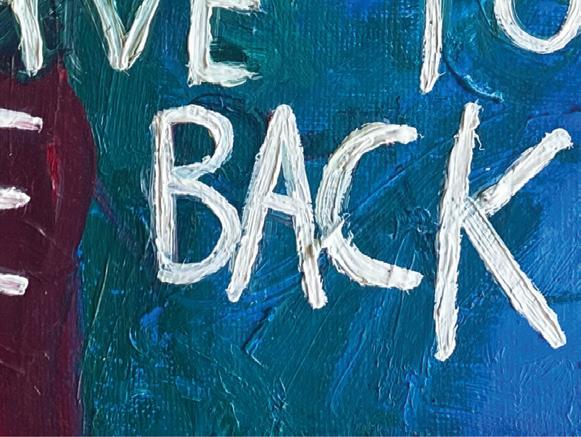
Sweat fissures the deep open floor of my dream No mug or book in that weary room acknowledges its violence Through cobweb-lidded eyes which are pulled tight against the firmament
12 months later, there is a mini-you, belching, ungainly, growing inside of me A terrible mistake, one for the ages. When you arrive you’re dressed choking in lace, the nurse tells me it’s caul We must live alone, together. Damn cipher - actress, activist, I name you Saul.
“They’re going to kill the Pope. But how can they kill the Pope, when he consecrated the world? take a deep breath...
You worry too much the small child grins as he greedily swallows another Kinder egg The whole world will still live on when the Pope dies.”
A bandaged interval in the form of a note rattles off in the distance from a song pit A diminished fifth, or an augmented fourth
His face was sticky as I adorned it with kisses Kissing around lesions that bite and gripe The dream deviates to where one does not wish To the legion of mannequins.
I once met for lunch with Bob Dylan and he prescribed me olanzapine and fentanyl for my delusions.
Both bottles were white and covered in a series of exhaustive instructions, nearly everything written in too fine a print to be read except for that of my name, which was displayed quite clearly in block capitals: ‘JOHN SMITH’
“Thank You”, I said.
He kept silent. He sat across from me bucketing chickpea soup and fixed his eyes downward. Our diner was neat and low-lit. It was Sunday.
“I must say”, I blurted, “It’s a real honour to experience you in the flesh, Mr Dylan Mr Zimmerman Sir. I had no idea you were in the practice of physicianing”
He scoffed, merely persisted at his lunch work, and said nothing. He didn’t seem interested; I suspected that he already hated me.
“You know”, I excitedly stammered on, “You and I are alike in many ways. I also like to write and sing – my favourite poet is Mr Allen Ginsberg. And I’m Jewish too!”
Truthfully, my name is Matthew Talbot. Both my parents were Catholic and I was raised atheist. I haven’t written a word in over four years and I think Ginsberg is the guy from one of Dylan’s music videos.
Still nothing from the Doctor. More soup. “Boy!” – I had not been discouraged – “You really are enjoying your meal, aren’t you Mr Dylan Mr Zimmerman Sir?”
He gagged and spat and lifted his enormous head and studied my beaming face and Spoke:
“What happened to you?” Disgustedly. “You had an idea once and now look at you –nothing but a pair of hollowed eyes racked upon dead weight with nothing to show for it but a single hackneyed attempt at a life that you’ve bled dry”
I was hurt but his contribution was a real one. My expression didn’t change.
“You always smile like you’re coming down”, he added, ”It makes me sick”.
At this, my face fell. Guilty and ashamed, I had disturbed him.
“You should put that in one of your songs”, I said after a pause, “Mr Dylan Mr Zimmerman Sir”, I added.
Another moment of silence passed. He was about to tell me I was an idiot and that it would be senseless to burden his melodies with such dribble, particularly when we had never met before – how would he have known how I always smiled? Or what I’ve done in my past? How did he know me?
But he didn’t speak, he composed himself, and something in the shade of his face changed; his countenance began to brighten, his expression mellowed, and his big brown eyes seemed to deepen, granting him an air of renewed warmth and Benevolence.
I then noticed something strange but not stirring that had, until now, somehow slipped my attention: He had been so enthralled in the process of finishing his meal that the chickpea soup now covered not only his chin but also his fringe-beaten forehead, and he had smeared much of it on the sleeves of his threadbare leather jacket. He chuckled and spoke again, now in a jovial tone – albeit ushered to a near whisper:
“You think I write my own songs?” He sounded almost surprised. “I don’t write my own songs. No true artist ever writes their own songs”.
No true artist ever writes their own songs. He drawled this last line from a widening grin, his eyes glazing in delirium, soup dripping delicately from his wiry protruding brow like rain from barren branches.
“What do you mean?” I pounced, matching his whisper. A certain chemistry had quickly developed between us, a synergy upon which we were both gorging. “Where do the songs come from?”
“Let me show you” he said, almost out of breath, with his ape-like hands gripping the ends of the tables with great force.
To my shock and elation, Dylan then opened his mouth wide, and wider still. His tongue unfurled and fell to the floor in a ribboned motion and his teeth receded into their fleshy pink progenitor. The inners of his cheeks expanded to such a size that they now formed the wall-like boundaries that defined our scene. And still he widened. The roof of his mouth soared to Pantheonic heights, heights in which exotic birds appeared, singing their exotic songs.
I looked back, into what had now become an all-encompassing ethereal void, and saw the things of deep time from which all beauty is borne: Quasars decorated an endless universe, a universe of infinity and of one. I witnessed the colour of love. The secrets of the earth were told in song. And all time elapsed into a single moment. I saw my name, Ben Joseph, written in the patterns of newborn stars. I saw the Gates of Eden, Johanna, Maggie’s Farm, and Death itself. There was Mr. Tambourine Man and Blind Willie McTell. There was everyone. Everything. Endless.
And I understood.
I finished my soup and left the diner. It was Sunday.

The electric razor glide of a Tesla actually increases the likelihood of motion sickness
The real convenience of wireless earbuds is how easily they get lost
The aftertaste of a cigarette retains more gravity in a kiss than a vape’s bubblegum clot
If I was thrown in that city’s river blindfolded I could still find a way to the boy’s apartment clinging only the old tech of desire after so many years, after all these mangled years
Claudia Friel
bite my shoulder softly, please
thanks, just right, and other things like that –you know, the kinds of things that make me sit inside for days and days and days and inculcate my faith and watch a myriad of soft mornings move from underneath me like they were never here at all
this ad hoc style of lover-ing – transient, sexy is the modern day’s Cadillac of romance; it’s an in-vogue way to steam in askance as Autumn’s trumpets fall and catch:
and I can almost hear the dust of all that nonsense settle in my throat
I’d prefer to be an actor on your stage than the star of my own show directed ‘til the end long after the audience goes home;
I want you to make a chess piece of me and at last, to stop lamenting it.
Dualtagh McDonnell
Pocket full of punches and the organ ready to blow there was adulthood for you.
So similar now, and a whisper away from crossing trajectories. Visit you at home now, pockets stuffed, talk about my new obsessions with fish.
Stupid silly, full lunches boxes and the microwave to clean. There’s so much to say, so many things I need to tell you, maybe our familiar trajectories will cross sometime soon, and I’ll take you to the fish market down by your new house.
Ellen
O’Brien SummerNow surrendering itself To dusk and half light. Crepuscule finds her home In archways, And hearts of those Whose love has strayed. Autumn Now taking its course Pulls me by the root, In preparation for Sundown. Love letters from winter months Lay unread. Unwritten.
The questions at the start of the nightmare came packaged with charms. As fresh lovers do, we laid naked and asked about each other: our lives before, all interests galore, families, friends, cities, books, beliefs, musics, the stuff that makes us up. Our days and our nights were nice and the Qs continued, though they grew onesided, full of odds. But no bother. See, I’d settled in, enamored, content with you. I eased myself – the rest would come out in the wash anyway, I said, to myself. But you worked strangely, sharply, with an inquisitor’s pen and a tattooist’s needle you pricked and pried, asked only and always about the past, searched without warrant, attacked and cried, squinted to see more but not more clearly, more more more how are you good are you ok yes do you love me yes do you love me yes do you yes do you yes and still you didn’t trust so the questions came harder, thicker, faster, more sinister, harsher judgment, and tried I did but upside down was my mind, spinning do you yes are you sure yes and like a toothpaste tube you rolled me up and rolled and pushed and pinched and squeezed and folded and do you do you do you until finally the tube reached the cap, no space no air and pop
Luca McVey blackbird hedgerow beak chokes on bone resistance ruins denim silence when sternum splits white canvas doused with guts lung is a darkened whisper wrapped in tar plumage.
from playful invasion blossoms brotherhood.
eat for two open! close! attempt to remain whole squeal between shoulders internal roar feeding time and he grows and you feel less at home wing constricts feather and fibre dance in a headlock. a hollow host is easy prey.
humanity out blackbird as heart.
Ethan Kerwick
To wake up starved of something and to not know what.
Heads bobbing around looking for something to love I feed them bits of bread hoping they love me back I am surrounded by scavengers!
All looking for something and to not know what
Then I went off to live my life and the pigeons forgot I ever existed

Lily O’Byrne Standing in your kitchen, sitting In your kitchen, singing In your kitchen, kissing In your kitchen
And the Aga is warm and billowing heat Out into our arms as they wrap around Each other, tiny new pancake sizzles on hot hot griddle pan, melted butter slowly running down and around Coating surface with gentle love
As you tell me you like my teeth Just the way they are and That makes me smile and show them off just for you, and
New haircuts are hard when new people are going to see them freshly done, crunchy
From someone else’s handy work that I will immediately dispel into softness
And spending time in cars means unlimited time to catalogue every last thing about you as you stare ahead at country roads and the only problem I have with those moments is your lonely brown iris-freckle Not resting within my line of sight, so I call your eyes over to rest on mine with my turning on of your new favourite song, and I feel beatific.
(Inspired by the scene from Fantastic Mr. Fox (2009) dir. Wes Anderson)
Alone on the dry, wild-grass heath Alabaster snow
Cuts a dividing line, harsh, yet axiomatic to those who know: I am an existence based on teeth Infructuous hermeneutics
How soldiers speak across the wind, The acacia trees whisper sand-music in your ears
While the winter firs call on you to rescind. All the life is here, all the life is here, all the life is here— Don’t you want to roam?
All the love is here, all the love is here, all the love is here And I am going home.
The Americans don’t know how old anything is and each year the rain and the sun and the wind are a little more than the year before and I deserve the world and nothing.
I haven’t read a book by a man in years. I once knew a girl who wept when she saw wood violets in the field out back but on her LinkedIn is a headshot and job title I don’t understand. It’s okay to think something is stupid so long as the feeling is mutual.
People worry about the dogs more than anything else, really. My egg had two yolks in this morningdouble homicide. I ate them on a plastic chair in the garden.
People who shouldn’t have babies are having babies and people who shouldn’t get married are getting married and at what point did it become okay not to ask me what I think about it all?
My friends told me to grow my unibrow outI think they wish me ill. I can go without speaking to another person for two weeks before things start to get weird. Tomorrow makes two.
The freaks with bomb shelters in their gardens must be happy right about now I wonder if I asked really nicely if they’d let us in. Please god I think it’s getting worse.
1. How do you express expressions?
a) Fear: i) eyes tight shut ii) hair stands up iii) sweat breaks on back of neck b) also Fear i) polite laughter
ii) neutral expression iii) chatter aloud to no-one, phone to ear, gaily
2. The fold up bicycle on the dart looked so sad. I wanted to comfort it: “Strong hands will soon unfold you, you will be prepared to go somewhere, you will be both carrier and traveller, your body here is impotent and contorted but it’s only lockedin potential, ‘Not Yet but Later’...”
3. Trickle-down Feelings: when I feel the small disappointment of a mis-hap (reduced bread will go off more quickly, more hunger, more waste), the other disappointments seem to bite the tail of that one and follow eachother: all the things I looked forward to that never came to pass, never can, the way disappointment coloured one year then another and what if it stays and grows instead of going away like hope did-
4. The echo of the words “I never knew you”
5. I know I am growing down.
6. Fell asleep on my arm and it was white, plump and comfortable; I am a down cush ion ; I see her dancing (pointed); I am intolerable; drool on flesh
7. “Here is my hand... // ... my hand that will not harm you”
8. Poem about how I couldn’t say no to sauce on my ice-cream even though I didn’t want any because I didn’t want to hurt her feelings even though it was just out of a plastic tube she had no hand in making it she works in the Scrumdiddly’s in Pen ney’s it’s not personal to her; how I explained to him that even if I had managed to refuse it wouldn’t have been a strong no it would have been I’m sorry maybe next time it seems lovely I just don’t feel like having sauce right now it seems a little too much maybe next time I will though.
9. Poem about how I’m allergic to Harry but I let him roll around in my bed and how I feel bad for being allergic: I hope he’s not upset by that it’s not his fault I wake up with puffy eyes and it’s harder to sleep now from him having been there, harder to breathe, I know it’s bad for me but I’d do it again if he came back and pawed at my door with that look on his face.
10. I never got over the shock of leaving the womb.
11. Poem sorting through a population of raspberries selecting the perfect ones for the top of the cake. Who am I to decide what a defect is ?! how they all become grotesque, from clusters of rubies to pustules of blood
12. Poem about how fruit could kill me, how my body seems to be always laughing at me for trying
13. Someone needs to give good words to the clouds we all see on the X1 to Dublin. I want to stand up in the bus corridor and ask which of you will do it, which of you can say properly how they are, and what ? But it is too late now.
14. That cloud in particular, the last I looked, the sun was inside it. Now it just stares back at me, baleful and dumb, as if a moment ago its edges weren’t serated and flaming; as though it wasn’t, just seconds ago, the centre of the universe !
15. Playing hide-and-seek with my body all summer, I wish I was a flower, I wish I was the sea, I want to be a curtain or a worm
16. Life of the morning dart, stationed before moving, what would you say it is ? a room ?
17. And if I was a flower, would I wish I could cry ? Is roaring enough for a lion or does it want to chant, can a gull sing a generational anthem ? Etc.
18. Looking out the dart window I see the aviva and I can keep my eyes on it as another dart streams through it; I can see the world still there but there is a whole dart running through it and the world is running through the dart and the scene is shifting because I am also in motion but I am so so still the movement is outside me and out beyond the buildings where am I exactly and why
19. All my poems are snails without shells. Monstrous, unhomed little things !
20. Painting the bread-mould because it is beautiful, singing small comfort to myself in the colours because life retrieved itself even in neglect, in waste, even in the very death. Looking at the new organisms, seeing the empty tomb.
At the start of the last ever winter
There were holes in both pockets of your coat. And a price to keeping the lights on But it was warm in their kitchen. Grey sun in the windows.
You could sleep on their floor. There were blankets and soft clothes. You could stay as long as you like. You would have liked to stay.
Sophie told the internet they’re Saving everything not nailed down. You heard the song that was from but you Liked it much better when Sophie said it.
Cooking together and licking the plates. Chugging your drink and throwing it back up. When you smiled up from the toilet bowl With watery eyes, everybody laughed.
You broke that glass on purpose, So the big shard would go up his foot. You even looked like you knew what you were doing. You never ran out of glasses to break.
There are jokes to make now. We make them a lot. We make them good. We make them so good it doesn’t hurt anyone. We make them so good nobody hurts.
The weekend before the new recession We’ll go to the beach like we said we would. We’ll dig a hole to sit in and watch the moon come up. The hole will be free. The moon will be free.
The news will say things are only getting worse. The ad break will say it can only get better. But we’ll know the good times when we see them. We’ll cup the moth gently in our hands when we catch him.
Let’s get high before the nuclear war. We’ll never have to do this again. We’ll forget to put the doomsday clock forward And miss the countdown to midnight.
I can’t stop saying I love you. I can’t stop thinking it’s true.
If we’ll really never have this again All I want to do is ruin it by saying I love you I love you I love you.
So we stay up late designing our forgiveness regime. Who cares what I think of me? We don’t deserve nice things. We might just get them anyways.
Ben Whelan
The shipmates acted according to the writ; they didn’t grouse about the work or the drouth, Yes, they were good. Whole weeks they strained at the oars beneath a weary sun, calloused and brine-lipped, murmuring thoughts in foreign tongues. Their blood coloured a yielding hide, content with playing-cards and bottles. (clean, o swab, clean your hair and fingers new, tackle, topsail, shit upon the mast and caked on bowsprit. scrub such intractable surface as putrid brine-soaked teak, rusted demi-culverin
o row row row for us who throw you from the spar-deck)
We used to sing with clotted tongues of ash trees blooming (freedom, hey-day!) of marble gleaming in the sun (hey-day, freedom! freedom, hey-day, freedom!) as we passed the isle of the larkspur. Yes, we sang for weeks on end until we hung our harps upon the masts. We sailed by many isles many seas which led from other isles and seas.
We anchored on fertile coasts, with delicate climates and the lapwings warble, (o! the lapwing! surf-lashed! swell-marked!) borne by waters that left the trace of great despair. Yes, I have forgotten and remember the trace of great despair. Still the voyages (o! the voyages!) they did not cease, and the shipmates died piecemeal, fastened to their oars. They lie dead in the dark in fetters, blackened by the moon and washed by the tide night after night
When I saw it poking from the bag like a mutant snail, I felt the same up side-down stirring in my stomach as when I pocketed a Barbie at the store and realised Ma was watching.
At playtime, half the class had piled in to see the chocolate bar Lizzie White’s older brother had brought her back from the funny country he’d been fighting in. Smooth and slick and littered with symbols nobody could understand, the bar ’s wrapper lit up every gawking face in a ghostly green. Drunk on its glinting metal, the clamour to touch it turned into pushing and grabbing and soon the bar was being passed round the circle like it was show-and-tell for the model bomb fall-out shelters. The sun’s molten tongue licked everyone’s face in gold as eager hands peeled away its interior. Squinting, someone put it in their mouth and then they were all at it, one by one, cramming it in. Chocolate backed up in the corners of their mouths like the wrong end of a squashed earthworm.
Lizzie gave a wail, before going to cry at the edge of the basketball court. Some of the other girls scuttled after her to pretend they cared, scowling and putting their arms around her.
Blood thumping in my head, I shoved my way into the circle. I grabbed what was left of the bar, caressing it all over and staring, as if looking at it for long enough would take me into its separate world forever. My gaze carried it inside me and I imagined the sweet liquid nuzzling around my teeth. Without looking around I leant forward and bit it, right as the girls launched their shrieking counter-attack.
“My brother didn’t come back with no leg for the sake of a fat freak like you.” Lizzie’s hissed words were so low that her voice might have come from inside my head. Then I was in the house, and Ma was there, bruised in shadow, spattering venom at me. He’d gone again and the space was sodden with the silence of a crashed wave dribbling back to sea.
“Children!” Mrs Stewart shouted.
Everyone scattered across the playground like oil in soapy water. Mrs.Stewart took the wrapper from me and told me chocolate would rot my insides. When she caught sight of the strange writing on it she stopped.
“Alice?” Her pupils turned huge. “Where did you get this?”
A thousand silent eyes followed me. Any denial died on my lips because by then my tears were spilling out like our broken tap. The other girls sniggered as I shuffled after Mrs Stuart.
Staring at the wrapper gripped in her hand, I willed it to stop her telling Ma. The chocolate was all I had. Its flat, bitter taste clung to my mouth’s every corner.
i keep thinking you’re building to something that never comes the camera cuts every few minutes and your shirt is the same light grey as the screen behind you it’s not a pretty picture and the audio is bad too. you have this quiet energy i’ve never seen you wear and your shoulders are back your fingertips touching. and why have you got pens in your shirt pocket i count three solid opportunities to declare class war. but you don’t, obviously. (it’s a disappointing debate) it reminds me of seeing him the one before you like im looking for someone i know and its over then you end your speech with i deeply regret this and i hope you do too.
 Kate Moloney
Kate Moloney
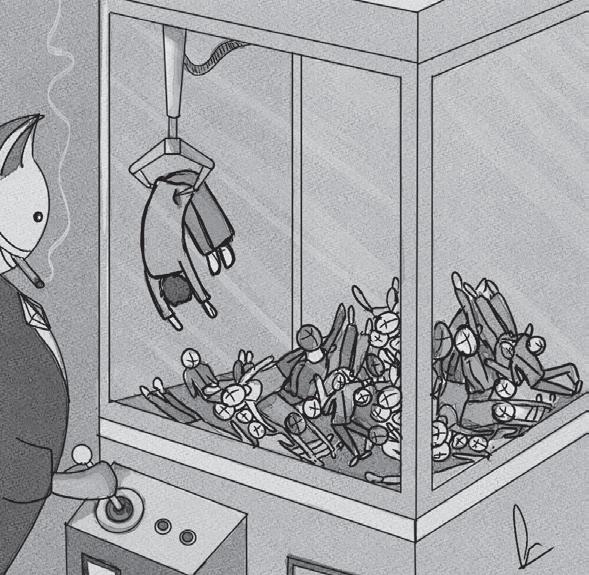
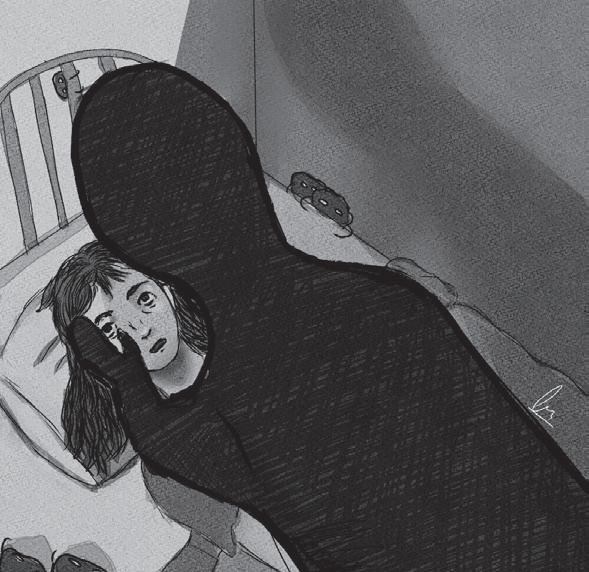
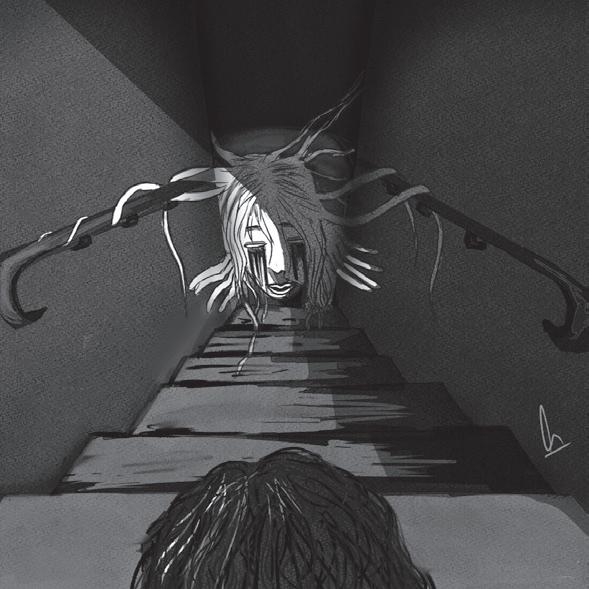
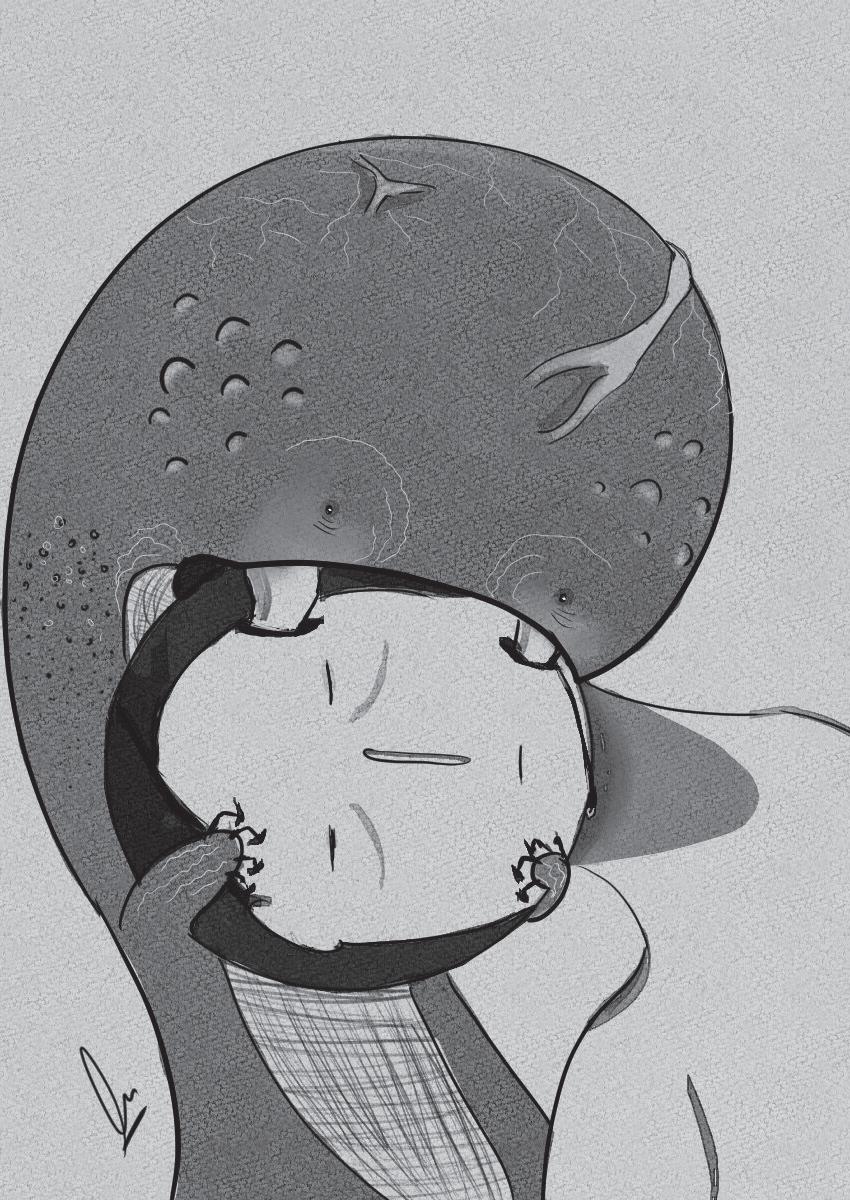

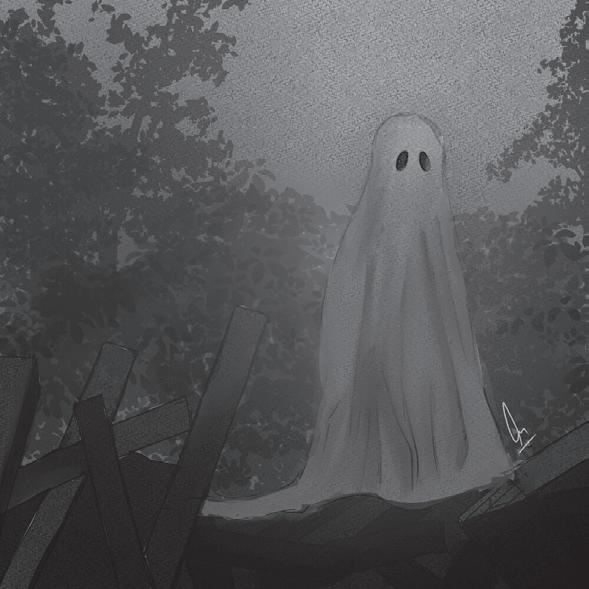
Ellen O’Brien Little one, Your arrival is imminent.
Dear pitseleh, with your mithered innocence
And washed up eyes, Reflecting your mother
Who pities your lack of error. Give it time.
In spring, you will blossom and flourish
Sweet apricot juice, seeping from the burnt skin Of a seething baby.
A cloth blanket swaddles your cries, Your fretting, darting eyes
Dribbling onto soft woollen fabric.
F.C Andrews
After school we watched in horror as grandmother’s tub of sea salt recoiled them, bubbled and boiled them into osmotic oblivion, dissolved back to earth— their poor untimely, undignified deaths. There were the beer traps too, when a tuna-tinned bud pool drowned them, when we played with their desires, their wants not their wishes. Those slick-yarned tracks had always won me over.
Today—I plodded upon the softest one, bursting its guts through its head, seven years since I had a hand in death, grandmother’s spools of wool fade by the window, forgotten, old tuna tins rust. And memory is born to love
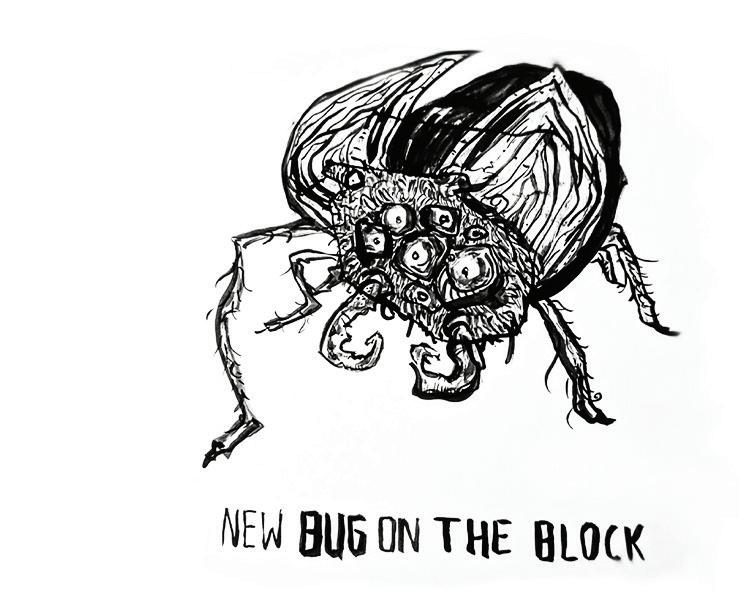
It is late spring. The graves are settling and taking on grass. The mutter of rain mothers softly humifaction, and softly the note of wild garlic saturates the night, its wild white inmixt with carilloned bluebells. The moon sluices its silver, its every wrung drop of mercury, to damascene each hung blade, stem, and bell, every kept cup and floret, to tell forth bright against the low earth. Gulls scream shrill in concert with sway of buoybell and a solitary wader’s low, slow moan. Tread light the night’s tide. Skip the bay with harthoof and gullweb and planxty for your keep as O’Carolan did.
See. The cocklepicker has already graven her proper dell for driftwood-fire to dapple, casting frail threads of pale smoke. She is young, but already her red-rimmed eyes are loose about the lids and gather flies and suffering like those of cattle. She has mussels too. At intervals the fire finds out copper wire in her hair. Play for her. Play sweet and softly, soft and sweet, that those sealeaves inscribed of tide’s change and wrack’s rise might open their pages in the pot, that your favour might be the salt savour and smack of the cradled mote inside. Horse them in. Chew grit and sand in each morsel of fishflesh. Playaway, pauper. Tap time on shingle. Sing a single companionable ingle of this night. Pluck and playaway night-tucked strings. Jig, jongleur for the joinery of her smile, your meet viatic token, freely given with the letting rills of her freetrilling overspilling lightlaugh.
Go. Rise, belly full, and cadge kale for tomorrow’s cally, gather a tilly for what you have got. Sound by how the clocháns voice the river if it’s fit for fording. Float, fric tionless and marlwhite, pearlbright; schaum, scum over a black, unwaking bay. You are transgressed to a shore where no bothy bower nor shieling stead will succour you. You fall, sciortán-starred and weary. The violence of whitethorn at noon is a swung and bedded nail for your slipping mind. Your Pierian spring is full of sheepdip. Drink deep. It is late spring and the graves are settling and taking on grass.
Ashley Kim the bed a bad mouthful of too-dry Greek yogurt honey oozes like nectarine juice I am a snail my shell is broken about to die at the hands of an expensive shoe— my friends are depressed your mom is depressed your mom I am marigold yellow like death pink turquoise bruise purple purple purple and turtles and rice bows its head as it ripens wisdom is heavy I am light I cross streets with three seconds left ooze across pavement in orange shoes that need washing choke on saliva on a night walk the stars are planes laughter reverberates I am about to die
Timothy H. Chastity, after morning focaccia, let his eyes rove the shelves until they stumbled on The Book of Judas. Hungrily, he assembled his oddities to see, removing a stray lash from the surface of his glasses: with the unnoticeable smudges of finger prints and hot air whorls.
Doodle. Doodle Kennelly: heiress of his genius put out like a lamp. Sandy mount: born; Blackrock: died. Up the beach to the stones. Of a pub. War before and after. It’s war again.
He said that he would meet Lionel round the corner of Dawson, by the South Portal of Trinity College.
Lightly turning, accessing his space, he passed through the cleavage of walled books into a larger room. Labeled: Fiction. Well-lit. Erudite schoolboys pawed at the shelves, making dimwitted remarks to impress the dark-haired girl at the count er. Always gives the homeless chap outside some coinage. Do you prefer the Oxford? the Penguin? I find Oxford’s introductions faaaaaaar superior; right, yes. —But the translators; right, yes. Another: yes. The tall one nodded and folded his thin arms; hands too big. Others nod too. One shakes his head: he wears a cap. They began to talk of Homer.
Pups. Lizzy, who owns the puppies, will sell them when they’re grown. Reynold Cooley sat keeping company to a pregnant labrador retriever. There is no obstacle but Gregory’s Wood and one bare hill. Seemed a bit uncomfortable: pregnant. Uncomfortable. Caught a nasty case of coronavirus last week. Cooley, not the puppies. Thank heavens.
Timothy inhaled sharply, rounding the corner toward the bestseller wall. From the lefthand pocket of his good jacket he removed a frayed strip of toilet paper to dab the tip of his nose. Commodity for the cold. Russian troops in Ukraine; icicle spears. No: stalactites bedangled. Their white snot dripping. Must’ve been yesterday. Two days now. Saw on St. Andrew’s two posters walking home: ISOLATE PUTIN. INSULATE HOMES. Zelensky making the cover of Time. Zelensky riding glori ously, bare-chested, on the back of a white mare. Jackets on? Jackets off? Trudeau, aye. Enthusiastic endorsement of equestrianism. Sounds like Lionel. Smiling: front teeth knocked out. Black eye. Kyiv occupation, annexation. Unyielded city asunder. Besieged.
He dabbed at the tip of his nose. Lefthand pocket: good. Left on his fingers from the exhausted handkerchief were grey and white residues: powder and rolled fibres and lint from the liner. Let bullets be birds, let cluster bombs burst into flocks.
Armitage.
The floor pattern at his feet discreetly summoned his attention: panels of wood with fake eyes, faux grain patterns, gum veins, hairline shakes and pinholes. Normally it was easy, in they slid. One side to another. Steady wear from the walk ers drew white lines across them at odd angles. Against the grain, nonparallel. How distracting. Bad. Then: less bad. Mullahinsha, Brummerol, Black Shanco. Whenever I turn I see.
Tall grass: odd against an Irishman’s boot. Certain haze in it, vegan spices: fenugreek, curry leaves, herbamare, thyme. Swollen tongue all the time in the taste of hot air, mouth a pile of sand; roving the path of rising echoes like roses: young girls hanging from their sleeves. There’s Paddy. There’s my good hat. Had a faded feather run it through. Turnus: the hat. Sleep till the sun crossed centre. Citrus petrol station; tent air, scent of fruit sweet or drying wood. Or peppery tropics. Call it aaah perfume; pat down your throat, be odorable. For Scentimental Reasons. One free drink if I bussed my ass off, pouring shots, hops from the mainland. Something Spanish about it. Birra, pavo. Tronco, mi mola.
He stared at the open door to Dawson.
Subtle at first the rain began trickling and tinkling on the iron rails of the Luas. Buses. A bell sounded: two-hundred fresh faces. No explanation needed. Cheers to that. Heineken. Remember when the lads at Guinness asked Behan to write a catch for ‘em? Pulled a stained scrap of looseleaf from his breastpocket and read trium phantly, Guinness: It Gets You Drunk.
Strayed against the bestseller wall: a lingering presence shifted the shadow from his form, arresting and spreading with ease over the stack of historical books in his blindspot. The presence created an airy disquiet, punctuated only by his unignorant side glance toward the door. Then it was upon him: a cat, unexpected; accosting and demanding his inattention with a soft pitch of ingratitude and odd helpfulness. Mutual negation. Self-reliant: taking their prey in private.
A sudden pinch from the universe made me aware of difference: one less person. Shampoo in my eyes. Philosophia’s feet. Think about that. Quite like that, you know. Might call it that in the future. Psssshhhhh.
She spoke to him with starkness, clarity: Wouldn’t expect to find you in bestsellers. Timothy stammered. Then: If they weren’t near the door, I wouldn’t be. Just on your way out then?
I stopped in to see Brendan Kennelly, but I’m meeting someone soon. You?
Behind her lurched the door. Weather’s taken a turn for the worse. Probably headed upstairs. Sara recommended a book to me, Feline Philosophy
Heard about this one. White jumper: there’s Lionel. That will do: honeyed death. Round the tables I. Upstairs I. The tables are dark wood: one with all the philos ophy books. Sara pointed at Kitty’s book.
There’s a few copies upstairs: third floor on the table. Did they give you a job here?
Laugh. He laughed: No, but it’d be the best job I ever had.
Impossible, sober sense of humour. Quick wit. Say something else: keep her eyes on you. Chap never brings his umbrella anywhere. Turns her eyes round, uncomfortable. This lyre lark is for the birds. Only time I can talk to Kitty’s when I have three pints keeping me warm. J. W. Sweetman. State the obvious.
It’s a wonder you have time for extra reading.
I don’t, really, but if I didn’t read something else for a change—
A smart hand, nails chipped with leftover paint, drew a two-dimensional circle by the side of her head with just the first finger. Frigid before the new rain, pale, the tips reddening before his eyes, obviously too engaged in the task at hand to notice their unnatural coldness.
Squeeze out a laugh. Light, fluttering laugh.
What about you? I assume you don’t have the time. Well, I take the train to Kerry every night.
Light on her eyes. Of course, I have nothing but time. Ad on Trinder: Have girlfriend. Want to juggle in a third ball. Tres Cantos. You are divine. I will live very curiously through you. No, no, no. I will live vicariously through you. If you let me alight on that rare topic: one night under the campanile and a few stars. Flashlight. Stand on three legs: leg one, leg two, phone. Ukraine, I’ll pray for you!
You must have plenty of time for reading then. Not that I ever do though, he sighed.
Ungrateful privilege.
I should get going; Lionel’s waiting for me.
Full of himself: that one. Without a doubt. Bye then. Byebye.
She crossed the threshold columns in her thick-heeled black boots, making straight for the stairs with a sentimental glance to the door and a few light squeaks. Eyes like stones: made grey by the overcast clouds to match. Awkward encounters in the third degree. He ordered himself in preparation for the rain, watching after her until she rounded the landing and vanished from sight. [...]
Chris Fitzpatrick
Pome ridden in my wards and in wards buried from my Further and Chancer whilst illroominating Chancer’s translution of Madevil de Guilehomme Elysium mentale, Every-sure-Sane, 1937
I can no further fleen with thorns venymous. I am so wounded as ye may wel seen that I am lost almost. My harte is torne it smert so sore.
Redress me, Mooder, and me chastise for certylinly my Further’s chastisinge that dar I nouht abiden in no wise, so hidious is his rightful rekenynge. Glorious virgine, fleur de lies, to thee, I flea. Half merci on me, thy vanqshushed amie.
Nighte now
Tell me! Tell me! Wakeme! Wakeme! Telmetale! Chancer! Further! Virgine! My pomes pennyfurthering?
My pomes poundeach?
All my pom(e)s, tryst and I sold. My nouvelle, où? Hapful his not fallen far froom three. Sew, I plague yer eyze. Ecce! Ecce! Here Comes Lucia! Sancta Lucia Plurabella! Die rosefail dam puny dotter! Prie, poor vouze!
Shem on you, Further, I, muse. I am who I am indeeds, inwards. I, Lucia!
I, I, I, I, I, I, I, I, I, I, I, I, I, I, I, I, I, Lucia!
In 1936, Geoffrey Chaucer’s A.B.C (la Prière de Nostre Dame), written c1370 and based on an earlier work by Guillaume de Deguileville, was published in Paris with illuminations by Lucia Joyce. The above poem is one I imagined Lucia might have written in 1937 while she was an in-patient in the maison de santé of Dr François Achille Delmas at Ivry-sur-Seine; the poem contains words and phrases she might have borrowed and adapted from Chaucer’s A.B.C. and the writings of her father, James Joyce. Poems and a novel written by Lucia were destroyed.
We didn’t mean to kill Mr Flynn. I thought he was gay and was in the park to meet other gay people. We had been queer-bashing during the summer.
Court statement of Anthony Maher, reported in The Irish Times, 9 th March 1983. IQA MS46,005/4
I.
It was easy to get good sticks –there were plenty of trees with low branches.1 We were waiting in the shadows there, with cudgels, our hoods over our faces.2 Paddy shouted twice – “Get the bastard.”3 We’d battered twenty steamers4 that summer, the team of us, clearing the park of queers and pedos5 . Maybe, that time, we went too far, but with perverts you have to do something physical, castration, I don’t know.6 Something. So we ran, all of us, and chased him until he fell and all I can think of now is the blood coming from the man’s mouth. I turned him on his side, so he wouldn’t choke.7
He was heavy. I remember that. And then he went quiet, limp, and it sunk in that he was after dying.8
1 Magill, April 1893, “The Night They Killed Declan Flynn: Maggie O’Kane talks to the Fairview Killers”, p. 11.
2 The Irish Press, 9th March 1983.
3 Irish Times, 9th March 1983.
4 Irish Times, 9th March 1983.
5 ‘Queer Bashing: Five Youths Freed After Park Killing’, Irish Independent, 9th March 1983.
6 Magill, April 1893, “The Night They Killed Declan Flynn: Maggie O’Kane talks to the Fairview Killers”, p. 16.
7 Testimony of Robert Armstrong, quoted in ‘Martyr in the Park’, GI Magazine, 2001.
8 Magill, April 1893, “The Night They Killed Declan Flynn: Maggie O’Kane talks to the Fairview Killers”, p. 16.
II.
It was a warm night in Fairview. Not an olive grove, but another Gethsemane of birch and sycamore by the brackish tide,
the obscenities9 of the rooks and gulls –good for hiding in, which was its blessing and its curse. I had a stammer, and froze up when they shouted,10 and the trees I trusted to cover me lent them their branches –flaying and whipping until the shadow fell – and that was me, on the ground when he came, just a slight gurgling noise, the blood pumping from my mouth.11
I drowned on it, they said – they made my own life drown me.12 And my father weeping by the fire. A betraying kiss, perhaps, but no stone rolled back, no ascension. They walked out of court free, he said, but my son cannot walk out of Glasnevin.13
9 Irish Times, 21st March 1983.
10 ‘Queer Bashing: Five Youths Freed After Park Killing’, Irish Independent, 9th March 1983.
11 John Sheridan testimony, quoted in GI Magazine, ‘Martyr in the Park’, 2001.
12 Declan Flynn inquest report. Cause of death: ‘Asphyxia due to inhalation of blood’.
13 ‘Queer Bashing: Five Youths Freed After Park Killing’, Irish Independent, 9th March 1983.
“Attacks on Gay People: A Report of the Commission on Discrimination”. Julian Meldrum, published by Campaign for Homosexual Equality, 1980. Lists attacks from 1st May 1977-1st May 1980. IQA MS 45,978/1 (over 250 incidents recorded)
I.
How to darn your absences, or to write the unwritten futures you left, or had taken from you?14
For you, lost friends I did not know, one little altar where I lay my dreams. For you a chime of bells, a gilt spear;15
for you, thrown in the water at night and stoned, one ghost’s crown with a sun.16 Instead of the steel
comb, for you an angel’s silk cut in diamonds.17 And – because still I cannot look at the red dress of blood they clothed you in –I stitch a seam in time’s refashioning: a crimson velvet instead, above you a shower turned rainbow, for you and your love a cupid’s bow and quiver.18 On the altar: incense, lilies. At the pulpit, a book of unfinished rhymes. And the priest is you, alive again, draped in a cloth of gold.19
14 Dutch report on criminal convictions for consensual male sexuality activity in Ireland, 1962-1974, as follows: 1962: 48; 1963: 35; 1964: 33; 1965: 49; 1966: 51; 1967: 56; 1968: 50; 1969: 45; 1970: 36; 1971: 25; 1972: 26; 1973: 23; 1974: 20. Total: 497.
15 A Ballymena man was stabbed to death in his car by a 21-year-old apprentice electrician: It appeared Nicholl had been defending himself, not from the threat of grave violence or death, but from the perverted sexual advances of the deceased. IQA MS46,005/4. Belfast Telegraph, 22nd March 1983.
16 Three members of a Hell’s Angels chapter threw a man into the river from the towpath and stoned him as he struggled, 20 feet out.
17 A victim of multiple sclerosis, who is unable to walk unaided, was kicked to the ground, punched and slashed in the face with a steel comb. Richard Ford dented the steel toe-cap of his boot in the attack.
18 A woman (20) was stabbed 65 times by an ex-lover after she left him for another woman
19 A young man was beaten unconscious, stripped and sprayed with gold paint
“Attacks on Gay People: A Report of the Commission on Discrimination”. Julian Meldrum, published by Campaign for Homosexual Equality, 1980. Lists attacks from 1st May 1977-1st May 1980. IQA MS 45,978/1 (over 250 incidents recorded) II.
How to darn your absences, or to write the unwritten futures you left, or had taken from you?20
For you, lost friends I did not know, one little altar where I lay my dreams. For you a chime of bells, a gilt spear;21
for you, thrown in the water at night and stoned, one ghost’s crown with a sun.22 Instead of the steel
comb, for you an angel’s silk cut in diamonds.23 And – because still I cannot look at the red dress of blood they clothed you in –I stitch a seam in time’s refashioning: a crimson velvet instead, above you a shower turned rainbow, for you and your love a cupid’s bow and quiver.24 On the altar: incense, lilies. At the pulpit, a book of unfinished rhymes. And the priest is you, alive again, draped in a cloth of gold.25
20 Dutch report on criminal convictions for consensual male sexuality activity in Ireland, 1962-1974, as follows: 1962: 48; 1963: 35; 1964: 33; 1965: 49; 1966: 51; 1967: 56; 1968: 50; 1969: 45; 1970: 36; 1971: 25; 1972: 26; 1973: 23; 1974: 20. Total: 497.
21 A Ballymena man was stabbed to death in his car by a 21-year-old apprentice electrician: It appeared Nicholl had been defending himself, not from the threat of grave violence or death, but from the perverted sexual advances of the deceased. IQA MS46,005/4. Belfast Telegraph, 22nd March 1983.
22 Three members of a Hell’s Angels chapter threw a man into the river from the towpath and stoned him as he struggled, 20 feet out.
23 A victim of multiple sclerosis, who is unable to walk unaided, was kicked to the ground, punched and slashed in the face with a steel comb. Richard Ford dented the steel toe-cap of his boot in the attack
24 A woman (20) was stabbed 65 times by an ex-lover after she left him for another woman. 25A young man was beaten unconscious, stripped and sprayed with gold paint.
‘Often callers ringing for the first time, simply don’t know what to say. […] While volunteers encourage them to say something, it may be four or five calls before they actually talk. Sometimes callers tell us that they have our number for months, but have not dared to ring us. Altogether we have had a high number of silent calls this year, 490 in all.’
Tel-A-Friend Annual Report, 1983, IQA MS 45,949/4
I.
As if it were a slowly penetrating rain, I became aware of a sinking feeling.26 It’s kind of lonely here where I am.27
There are many times I wish I could find the right way to tell them but the words stop up my mouth.28
There are many ways I still close the closet around me. Either that, or my body is the closet I hide in.
I never wear anything too camp, too brightly-coloured.29 I want to speak to my father like my brother and my sister do.30 Always, I introduce my lover as my friend or flatmate. And when the landlord comes to collect the rent, I take great care to make the second, unused bed look slept-in, and untidy.31
26 Margaret Klee, ‘Whose Life Is It, Anyway?’, (March/April 1995), p. 20. FIND MS.
27 Letter to National Gay Federation from Garry Hemp, Bayville NJ, Éanair 1998. IQA MS 45,944/3
28 Outhouse Youth Group Questionnaire, anonymous respondent. August 1997. IQA MS 45941/10.
29 Letter to Out magazine, from Richard Madigan. IQA MS 45,995/3.
30 Outhouse Youth Group Questionnaire, anonymous respondent. August 1997. IQA MS 45941/10.
31 Letter to Out magazine, from Richard Madigan. IQA MS 45,995/3; AND review of David Leavitt, Family Dancing: Stories (Knopf, 1984), by P.F. Grubb. IQA MS 45,996/5.
II.
Then, there was a voice. I imagined her standing between me and the brink of space I thought I would fall into.32
It took me four journeys down the road to the phone-box before finally I picked up.33 I pictured the hundreds of empty miles between us, but still inside me the signal would not cross – the line unstrung between Are you? and I am. 34 I hung up and ran home, afraid of myself. A week later, I tried again. A trip to Dublin, a flow of faces like apparitions35 along Capel Street –the shrouds of raincoats, the cobbles
shining. When one girl helped me with the door,36 it was like her hands were opening a closet.
When I stepped inside the building towards them, I almost stepped out of my own body.
32 Samaritans Limerick Annual Report 1980. IQA MS 45,950/5.
33 Tel-A-Friend Annual Report, 1983, IQA MS 45,949/4.
34 ‘Ask fairly soon, Are you homosexual?’. Tel-A-Friend Guidelines for Telephone Befriending. IQA MS 45,949/4.
35 Lonely Gays Society, promotional flyer. IQA MS 45,949/8.
36 Cara-Friend Fifth Annual Report, 1978-1979. IQA MS 45,949/2.
Luke Rabbitte
In the flash of the pan
Trash in the garbage can Clanging on the roof
Burning newsprint to warm our souls We pay the tolls for roads that go nowhere Near home
Scooping us inside, Isteach libh
Do you want to live in the bloody pits
Or a bheith ag dul ar aghaidh in the midst
Of clamour, no more hiding behind the mist
The Foyle has split this town in two According to what’s beginning to feel like hundreds of thousands of excuses
Read my bleeding lips
Everything I say spills onto newsprint
They are having a field day
And it tastes kind of strange Never the same as what they say sotto voce Antiquity feels a long way away until you notice The foreverness of today
Isteach libh
I am quizzing you
You can lob whatever you want at me over the vanishing fence of history, sit still in your holographic, substanceless frame named the future, but still I am quizzing you Judging you, Scooping you.
Saluting you. Wave back.
Jes Treff - First year English and Philosophy student, brought to Dublin after being seduced by the library and the ghost of Oscar Wilde. What do gender, Hegel and this question have in common?
Ashley Kim is a Korean-American writer located in California. Her poetry and short stories have appeared in Spill Stories' anthology entitled Powerful Asian Moms, Hyphen Magazine, Stirring, Autofocus, and FEED, among others. She also reads for Variant Literature. Find her on Twitter @ashlogophile. Soli deo gloria!
Luke Rabbitte - I am a keenly interdisciplinary musician, photographer, and writ er from Dublin. Through constant self-iteration I try to come ever closer, one word closer, to recording the inherent interconnectedness of things, documenting the various simple and abstract joys that arise from life. Recently I have been trying to guide my wanderings around more tangible central images, enjoying the creative power of restriction.
My name is Canice McCarthy. I am from Dublin and I study English literature in Trin ity College. When taking photos I use my Canon EOS 3000 35mm film camera which is usually loaded with Fujicolor C200 35mm film. The camera was given to me by my father when I was small and only recently have I come to really enjoy using it.
Willow Hannon is a 3rd year music/film student who makes a damn good gnocchi, is pretty good at geoguessr, and could talk for hours about how Gimme! Gimme! Gimme! (A Man After Midnight) by Abba has the best synth riff of all time (followed closely by Bjork's Army of Me)
Vivien Sweet is a tag rugby referee. She wants you to know that oranges are not the only fruit.
Aoibh Anna believes belonging is reciprocal, like touch. she is taking two steps forward, one step back. she wishes she could remember properly how it felt to be four years old. she's a scribble, a scrawl, a claw at the wall. she hopes to find the place where she and things belong together (she hopes the same for you too).
Charlotte Moore is a third year English Studies student who keeps on saying she will 'Take Poetry Seriously' but then doesn't. Stay tuned.
Catherine Ding - I study English and Film. I have a nasty habit of speaking with su perlatives and putting all of my coins in the sink every so often to wash them.
Róisín Sheerin - I am a mature student and have just graduated from T.C.D. with a B.A. in English and History. I am now doing an M. Phil in Creative Writing at the Oscar Wilde Centre. I practiced performing poetry in my salad days and in recent times have been concentrating more on prose. Through attending Harry Clifton's poetry workshop, my interest has been rekindled in writing poetry again.
Fionn O'Drabhláis operates under the (probably correct) assumption that he is better than everyone else. He writes primarily in the hope of creating something beautiful that will help to absolve him of the unspeakable crimes he is yet to commit. If you think you understand him, don't fool yourself. Tell him he's good and move on. (Tell him he's good).
Yeva Husevawhere the winds do not bawl. the silence above. the silence below. deep under the snow buried the hearts of those who could not crawl. let the sprouts of grief and despair not grow on their mass grave
Rhiannon McGavin's work has appeared in The Believer, Teen Vogue, The Los Angeles Times, and more. She is the author of Branches and Grocery List Poems (Not a Cult).
Claudia Friel is a final-year philosophy student who wants you to come to the beach with her right this second. Hurry up, she is waiting. Don't let her down. Where are you? Oh dear. She's crying a bit now. Where are you? Oh no. Oh dear. Give her a little kiss. Give her another one. (It's ok, she feels better now)
Dualtagh McDonnell is a fish. Contact him @bigflipper for any fish related enquiries.
Ellen O'Brien is a trad flute player and pianist from Cavan, and is in her second year of studying Music Education. She finds that her writing is often influenced by sensitivity in life, and feelings which present themselves to her through different art forms, such as the works of Nick Drake, Egon Schiele, and moments she witnesses in her day-to-day life.
Grant Burkhardt studies at Trinity College Dublin alongside the massive talents of the M.Phil program in creative writing. He writes short fiction stories and is working on a poetry collection called Fathers. He was born in Pittsburgh, Pennsylvania.
Luca McVey is a recovering Gleek.
Ethan Kerwick is a 21 year old poet who writes mainly stream of consciousness and is deeply interested in the separation, and relationship of, the internal world and the external world. This poem was written when out feeding frolicking pigeons and follows thought to thought the unaccounted for and rarely represented dialogue of the inner world! We may not be that different to pigeons after all!
Scarlet Short- I am a third year film student and my favourite animal is the cow. Sadly, I did not get a picture of one in America, so I won't be going back.
Lily O'Byrne is hoping everyday for a sponsorship deal with Birkenstock so she can be rewarded for the hard work she does loving her clogs so very much and making sure everyone knows they should also have clogs. Remember: a clog is for life, not just for Christmas.
Lauren Scott is an English Literature student who has been writing down the products of her overactive imagination since she could hold a pencil. She can usually be found with copious amounts of tea either reading books or writing books. For irregular writing updates you can follow her on Twitter, @notlaurenscott.
Catherine McGovern broke the plastic chair in her poem and then lied about it. I'm sorry, Agnes.
Megan O'Driscoll is hanging loose. You can read more of her recent work in VIBE and An Áitúil. She is editor of Sweet Tooth. You can find her on the internet @meganodriscll or in real life goofing off with her friends.
Ben Whelan is from Templeogue. He likes listening to music and reading books. He has been to Old Trafford twice.
Eve Smith is a languages and literature student that would let visual arts swallow her whole if she could. She's written on film for TFR, TN2 and works as an editor for her university film publication.
Gabrielle Fullam is still here. She is a graduate of Philosophy and Sociology, and she writes poetry, fiction and theatre - which you can read.
Kate Moloney (she/they) is a first year law student and lover of eccentrism. Residing in the multiverse of gender, neurosis, and romantic idealism, she creates mostly visual art inspired by all other forms of creative discipline, and tries to articulate the energy she feels about such a practice. She hopes one day to become everything she can all at once. She likes sweet drinks, warm light, and crimson roses. She's also from Dublin and loves her kind old home with all its graffiti.
Kratika Joshi is from India, vibes to elevator music, always has that funny feeling and is as good as the first draft. She digresses from reality through her art. (Instagram @mayyyy.art)
Fionn Cian Andrews achieved his undergraduate degree in Human Nutrition from University College Dublin in 2021. Andrews is currently a postgraduate student on the MPhil in Creative Writing Programme at Trinity College Dublin, where his work explores themes such as nature, isolation and transience. His poem Slugs is his debut publication.
Jessica Sharkey is an art historian and artist. If having an existential crisis was a job she'd do that too, but in the meantime if you'd like to see more art, check it out @jessyphus on instagram.
Seoirse Swanton is a Senior Sophister (and sophistic) Student of English Literature and French from Mayo. Of the rest of his biography, we must take a leaf from James Joyce's book and say of this "nayman of noland" that "the unfacts, did we possess them, are too imprecisely few to warrant our certitude."
Matthew James Hodgson is a postgraduate student of literature at Trinity College Dublin from Helena, Montana in the United States. His work has appeared in Evans ville Review, The Rook, and Garden of Venus. In addition to creative writing, he also writes reviews for TN2 and does journalistic work for Trinity News, Blaine County Journal, and Great Falls Tribune. Hodgson received an undergraduate degree from Montana State University and a postgraduate degree from University of Chicago before continuing his education in Ireland.
Chris Fitzpatrick is an extra-mural student (Kingship and Warfare: Ireland c10001318). His first collection of poetry, Poetic License in a Time of Corona, was pub lished by Twenty First Century Renaissance in May 2022. He has also published short stories. He is a retired medical doctor.
Seán Hewitt's debut collection of poetry, Tongues of Fire, won the Laurel Prize in 2021, and was shortlisted for The Sunday Times Young Writer of the Year Award, amongst other prizes. His memoir, All Down Darkness Wide, was published in 2022, and he received The Rooney Prize for Irish Literature in 2022. He is a Poetry Critic for The Irish Times, and teaches at the School of English, Trinity College Dublin.
Ava Chapman is in the archives again. She's ordering more manuscripts. You couldn't stop her, even if you tried.
She'd like to say thank you to Holland & Barrett's night-time CBD oil that tastes like chocolate, FaceTime for allowing her to talk to everyone she loves in California, and her laptop - for not crashing every day despite the amount of tabs she has open. <3 <3 <3
Cathal Eustace:
- Is surprised
- Has weak lungs
- Wishes it could be Christmas every day
- Didn't know life was gonna be this way
- Enjoyed your submissions and can't wait for more
Icarus acknowledges and thanks Trinity Publications for making this issue possible.
Icarus is a fully participating member of the Press Council of Ireland.
Serious complaints should be made to: The Editors, Icarus, Trinity Publications, Mandela House, Dublin 2. Appeals may be directed to the Press Council of Ireland.
Information concerning copyright and permissions can be found at www.icarusmagazine.com
Sincerely, thank you for reading.